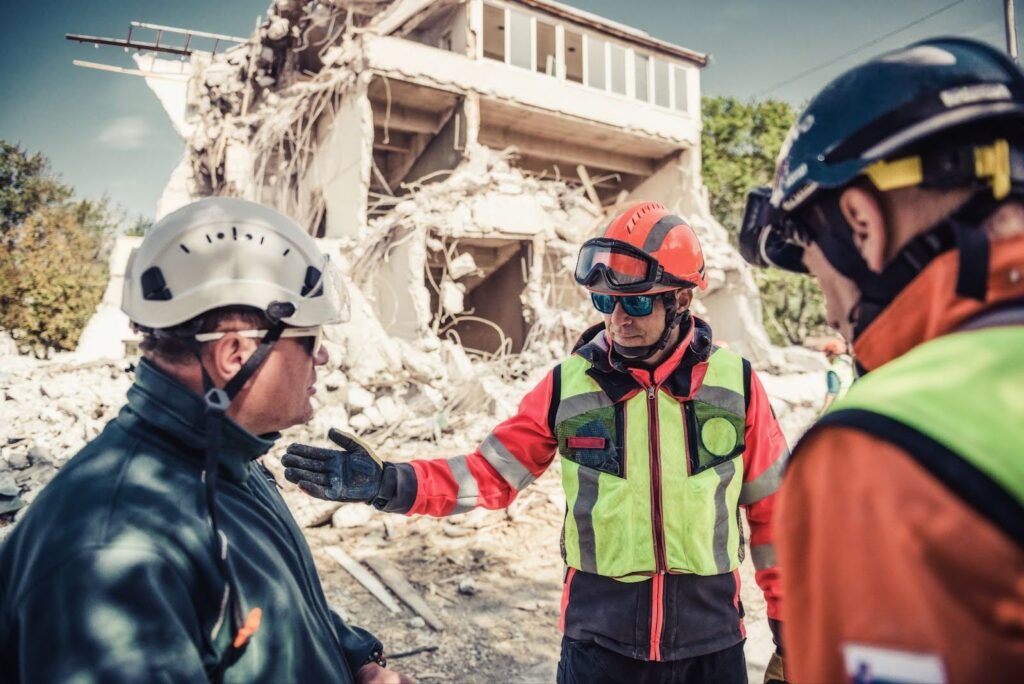You’re ready to develop or upgrade your homeland security and disaster preparedness skills, expertise, and credentials, but you’re worried that a degree program might not fit your busy schedule. Can you manage work, personal responsibilities, and a master’s-level curriculum? Or will you have to cut back somewhere?
The good news is that you do not need to put your career or personal life on hold to advance your career with a graduate degree. Many students manage to do it all: according to the Hamilton Report, 81 percent of graduate students participate in the labor force. With preparation and a robust support system, you can simultaneously complete your master’s and continue to meet your other commitments and priorities. A flexible online degree built for the working professional, like the Master of Arts in Homeland Security and Emergency Preparedness (HSEP) at Virginia Commonwealth University, can help you balance your work-home-academic life.
Prepare Your Community for the Unexpected
Earn Your HSEP Master’s Degree at VCU
How to Pursue a Homeland Security Degree Online While Working
Working while earning your graduate degree delivers many advantages. The ability to analyze current on-the-job challenges through an academic lens and immediately apply those insights to your work are valuable benefits. Others include:
- Retaining your salary
- Capitalizing on career advancement opportunities
- Taking advantage of employer tuition reimbursement
- Broadening your professional network
- Maintaining a robust resume without employment gaps
To earn your graduate degree while working, you should know the possible challenges you could face. Before you embark on your education, take some time to establish a plan for coping with potential setbacks to minimize disruptions and keep you on track to graduation.
What Challenges Should Working Students Expect?
Common obstacles affect many working professionals who return to school. Anticipating challenges can help you prevent them from interfering with your academic success. These might include:
- Balancing school and work obligations
- Stress
- Time management
A quality graduate degree program supports the unique needs of working students—from student support services to flexible program design to asynchronous/synchronous course content. Look for a program that invests in its students’ success.
Strategies for Succeeding in the Classroom and Beyond
Virginia Commonwealth University’s online master’s in homeland security and emergency preparedness program graduates can confidently and competently meet the challenges of school, work, and life. By planning ahead, developing a support network, and embracing the benefits of an online education, they can meet their academic and professional goals with less stress and greater success.
Create a Sustainable Schedule
Go into each semester with a game plan. Make a schedule that includes time for studying and projects, work deadlines and responsibilities, personal appointments and obligations, and everything else you anticipate. Work well before deadlines so you have time to adapt when an unexpected wrench lands in your well-oiled machine.
Build a System of Support
Enlist the help of others. Discuss your academic plans with your employer, emphasizing how your degree relates to your professional position and future goals within the organization. Share your time commitment expectations with your manager and investigate tuition assistance opportunities with human resources. Educating your superiors about how your degree benefits the organization will create another layer of support that can help get you through future challenges.
Make the Most of Online Learning Services
Use VCU’s resources. From faculty office hours to student support coaches to virtual study groups, a vast Ram network awaits to guide and support you through your degree and beyond.
Spotlight on the Online HSEP Program Student Support
The online format of VCU’s master’s in homeland security and emergency preparedness is designed to support students every step of the way. A robust curriculum delivered in small class sizes ensures vibrant discussions and deep faculty involvement. Break out sessions and group work foster camaraderie among peers that lasts long after the diplomas are received.
“Not a week goes by that I don’t talk with a few of the graduates from my program by text. It’s great to know that if I need a favor or to ask advice, I have people that I can talk to.”
—Darshan Parikh, Deputy Emergency Management Coordinator, Chesterfield County
The faculty includes inspiring experts in their fields. Their combination of knowledge and research experience informs a curriculum designed to create the next generation of highly qualified homeland security and emergency management professionals.
- Benjamin Young, assistant professor, studies North Korea’s history and evolving threats.
- David Webber, assistant professor and assistant chair, investigates what the motivations of terrorists teach us about Afghanistan.
- Maureen Moslow-Benway, assistant professor and program chair, examines the effects of human trafficking.
“The faculty are amazing here. All of my professors have gone above and beyond in supporting and encouraging me. And those relationships don’t end when a class ends. … That’s special.”
—Kabrina Tippett, Occupational Safety Specialist
Complete Your Degree without Pausing Your Career Growth
By prioritizing time management, soliciting employer support, and accessing student services, you won’t have to sacrifice your job to gain your degree. A flexible program committed to your success—like VCU’s online master’s in homeland security and emergency preparedness—will help keep your plans on track and your goals within reach.
Earn your degree from the first university to offer a master’s in emergency preparedness. Reach out to an enrollment advisor for more information or start your application today.
